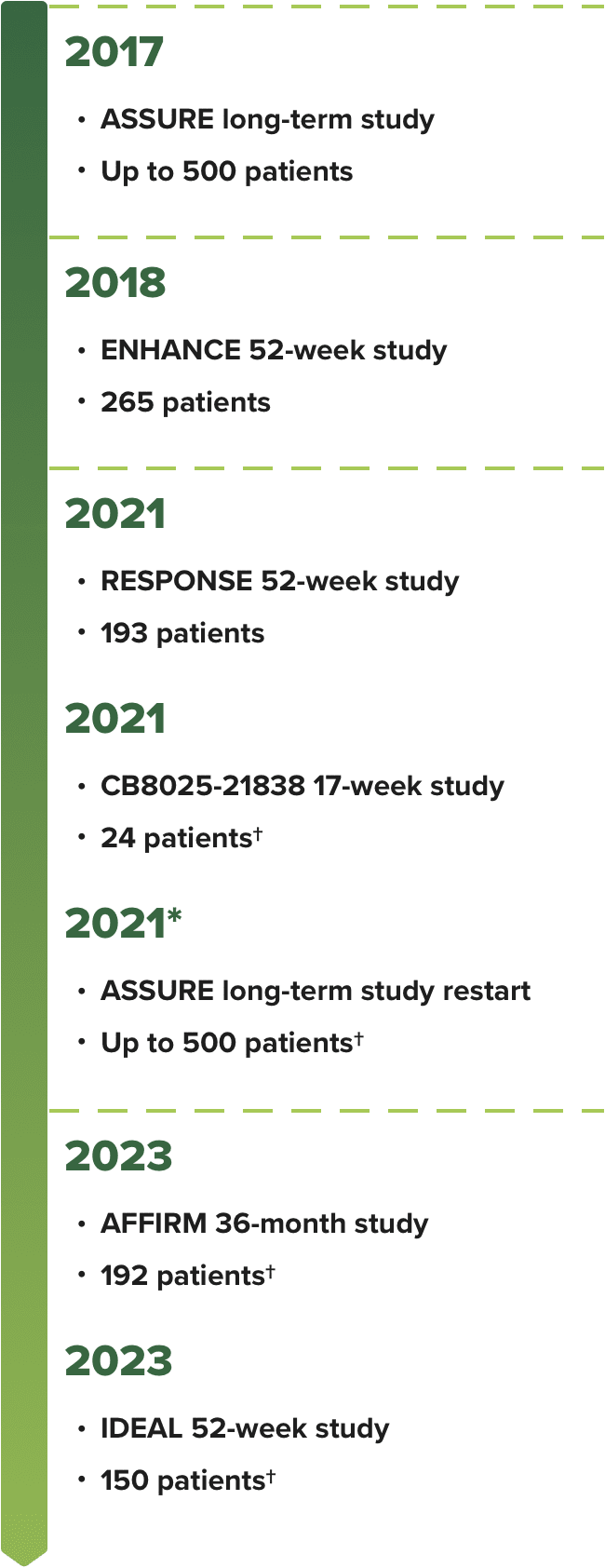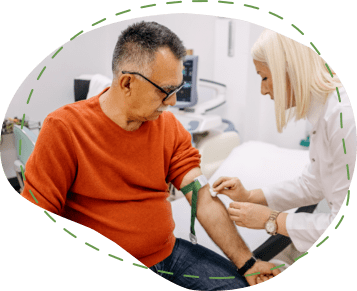The content of this website is intended for United States audiences only.


*The original ASSURE long-term safety study was stopped early and then re-started in 2021. Source: Kamata S et al, 2023
†Still recruiting.
PBC is a chronic liver disease that occurs when the small bile ducts in the liver get inflamed and then eventually destroyed. This leads to bile build-up, causing liver damage, scarring, and potentially liver failure. PBC is an autoimmune disease where the body’s immune system mistakenly attacks healthy bile duct cells.

While PBC can affect anyone at any time, it’s more common in:

PBC often goes unnoticed as many people have no symptoms. It’s typically discovered due to abnormal results in routine liver blood tests.
Blood tests


We're working to discover, develop and deliver innovative therapeutics for people with life-threatening diseases.
We're working to discover, develop and deliver innovative therapeutics for people with life-threatening diseases.